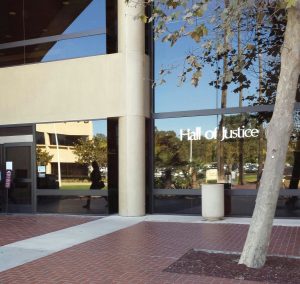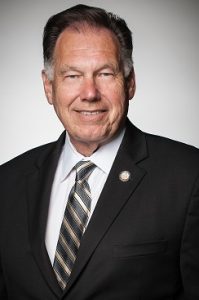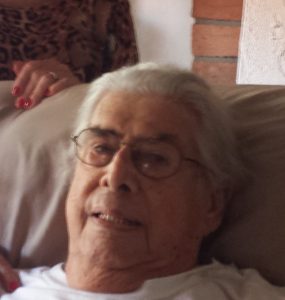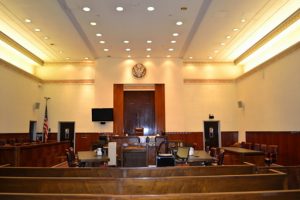BY RAUL HERNANDEZ
 California prosecutors can now go to prison if they hide evidence from criminal attorneys.
California prosecutors can now go to prison if they hide evidence from criminal attorneys.
The month, Calif. Gov. Jerry Brown signed the law that makes hiding or tampering with evidence a felony instead of a misdemeanor.
This is a law that is long overdue, and hopefully, the rest of the country can follow suit in adopting similar laws.
After sitting in more than 110 murder trials and countless criminal hearings in 18 years of covering state and federal courthouses, the one complaint raised more often by defense lawyers during the discovery process was that prosecutors were withholding, hiding or tampering with evidence.
Many of these allegations are just legal chest thumping but too much of it, unfortunately, is true, resulting in innocent people being sent to prison.
The California law, introduced by Assemblywoman Patty Lopez, a democrat from San Francisco, can result in prosecutors who illegally withhold or tamper with evidence to end up behind bars for up to three years. Previously, this kind of prosecutor misconduct was considered a misdemeanor.
“I hear so many stories about innocent people across California, and across the country, who have been wrongfully convicted,” Lopez told the Los Angeles Times this month. “I just hope that when people think the rules don’t apply to them, they will think twice before they abuse their power.”
It is an abuse of power but some unethical and unscrupulous prosecutors working at the District Attorney’s Offices do hide or tamper with evidence. They are more interested in posting courtroom victors to advance their careers rather than administering justice.
Taxpayers also end up paying millions of dollars for courtroom and other legal costs when an appeals courts rule that prosecutorial misconduct denied a defendant a fair trial.

The law was passed after the entire office of Orange County Dist. Atty. Tony Rackauckas was removed from one of its most high-profile cases: the prosecution of mass murderer Scott Dekraai. The court ruled that prosecutors violated rights of confessed mass murderer Scott Dekraai by failing to turn over evidence.
To read the Orange County Register article on the case click here: Scott Dekraai.
Orange County Judge Thomas Goethals ruled that misleading or false testimony from sheriff’s deputies about jailhouse informants and the unintentional failure of prosecutors to turn over evidence.
An Orange County public defender, representing Dekraai and double-murder defendant Daniel Wozniak, accused police and prosecutors of illegally using jailhouse informants over the past 30 years to coax confessions from defendants and withholding evidence about those informants, according to the Orange County Register newspaper.
Rackauckas has admitted in past interviews that his prosecutors made some mistakes in handing over evidence and using informants, but none intentionally.
Jail House Informants
This evidence law signed by Brown is especially important when jail informants are used in criminal cases.
During the time I covered criminal trials in Ventura County, law enforcement was using a jail informant who was getting many defendants to confess to crimes.
In 2009, for example, defense lawyer Robert “Bobby” Schwartz criticized the use of this jail informer to testify against his client.
I covered the trial for the Ventura County Star.
Schwartz maintained that his client, a murder suspect, while speaking to the informant, admitted shooting the boy because he feared for his life and thought he was going to be killed by the Mexican Mafia prison gang if they believed he did a drive-by shooting.
 According to law-enforcement officials, the Mexican Mafia has issued an edict on the streets against doing drive-by shootings because innocent people sometimes get killed, which can spur additional law-enforcement efforts that disrupt the drug trade. The informant told Schwartz’s client that he was associated with the Mexican Mafia.
According to law-enforcement officials, the Mexican Mafia has issued an edict on the streets against doing drive-by shootings because innocent people sometimes get killed, which can spur additional law-enforcement efforts that disrupt the drug trade. The informant told Schwartz’s client that he was associated with the Mexican Mafia.
Schwartz said the victim wasn’t able to pick out client in three photo lineups, and his client didn’t have a speck of blood on him when he was arrested.
For more information on prosecutorial misconduct click here: California Innocence Project
SANTA ROSA, Calif. (Courthouse News Service) — A California appeals court overturned a homeless man’s first-degree murder conviction because the trial judge wrongfully excluded expert testimony on the plight and dangers homeless people face.
Vladimir Sotelo-Urena, 31, was convicted of the Dec. 24, 2013 murder of Nicholas Bloom.
Both men were homeless in Santa Rosa. Sotelo-Urena claimed it was self-defense: that he thought Bloom had attacked him before and he feared for his life, Courthouse News Service reported.
An expert witness was to testify that because homeless victims are subject to violent crimes at much higher rates than people with homes, Sotelo-Urena was much more sensitive to perceived threats.
The victim was stabbed 80 times
To Read More Click Here: Homeless Man

On a Sad Note
My 89-year-old friend Mickey Schlein died Thursday. My condolences to his family. Mickey spent 16 years sitting in courtrooms at the Ventura County Superior Court and taking notes. His calm smile, white tennis shoes and ambling gait at the courthouse’s hallways will be missed.
Rest in Peace, My Friend.
A Tribute to the Greatest Court Watcher Ever: Mickey Schlein


 The evidence indicated that the jailhouse informant, who was in a witness-protection program at the time, was three-strike felon who was paid $300,000 by law enforcement, including the FBI and the Drug Enforcement Administration, to inform on others.
The evidence indicated that the jailhouse informant, who was in a witness-protection program at the time, was three-strike felon who was paid $300,000 by law enforcement, including the FBI and the Drug Enforcement Administration, to inform on others.